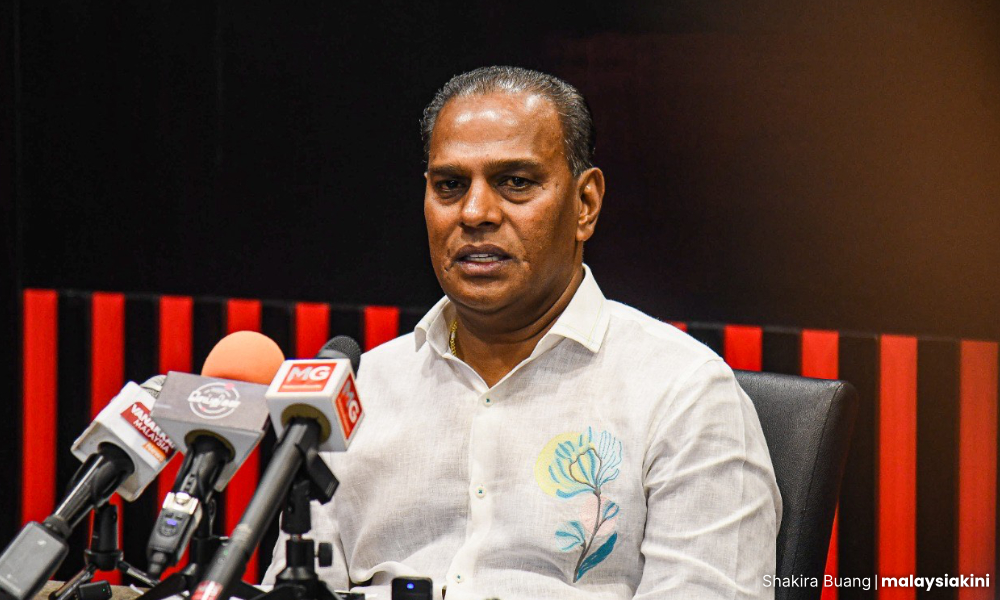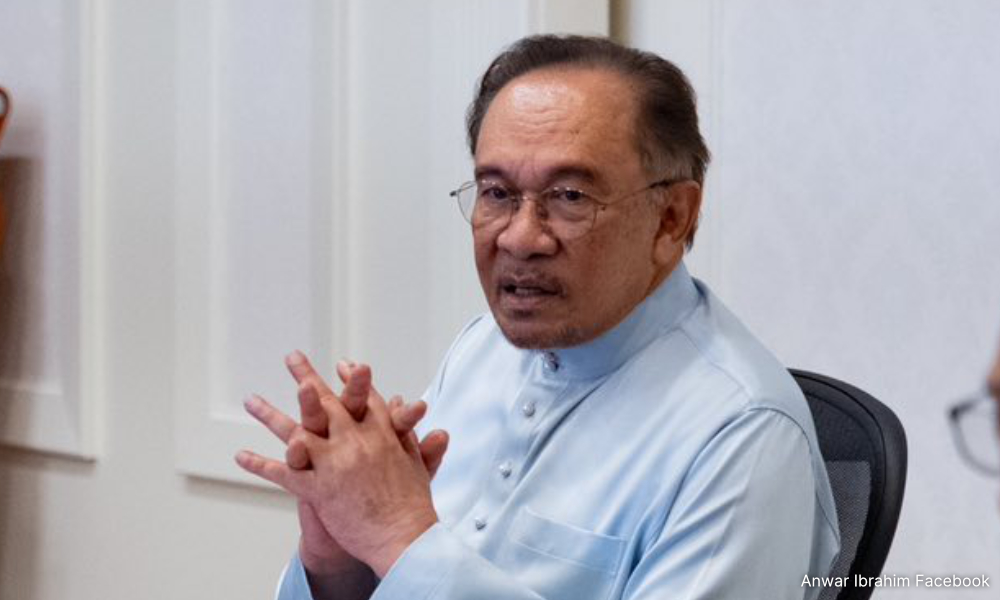Urimai chairperson P Ramasamy has sharply criticised MIC deputy president M Saravanan’s appeal to Prime Minister Anwar Ibrahim to instruct government departments and agencies to cease using the term “kuil haram” (illegal temples).
“It may be a case of too little, too late,” he declared in a statement.
Ramasamy emphasised that while Saravanan’s intentions might appear commendable, the timing and nature of his request raise crucial concerns.
“For one, there is no necessity for a full cabinet discussion on the matter. A simple directive from the Prime Minister’s Office, channeled through the chief secretary to the government, would suffice to halt the use of such a term.
“But that, in itself, assumes a willingness from the top to correct a long-standing injustice - a willingness that remains elusive.
“Saravanan, knowingly or not, is appealing to the very person who helped normalise this term in the first place. Anwar played a significant role in institutionalising the label ‘illegal’ in reference to Hindu temples, particularly during the controversial relocation of the 130-year-old Dewi Sri Patharakaliamman Temple in Masjid India,” he added.
Political weapon
Ramasamy asserted that the prime minister’s stand sent a message to government departments and agencies that branding Hindu temples as “illegal” is not only permissible but effectively sanctioned from the highest levels of leadership.
Consequently, he warned, the term has become a powerful ideological and political weapon.
The Urimai leader argued that MIC, once the unassailable voice of the Indian community, now finds itself relegated to a diminished and reactive role.

“While Saravanan’s move may be seen as an attempt to regain relevance in the wake of the Ayer Kuning by-election, it risks appearing as a mere plea for crumbs from those who have overseen decades of institutional neglect and discrimination.
“Surely, even in its weakest moments, MIC leaders must show more dignity and fortitude. Instead of passively seeking accommodation from those perpetuating these injustices, the community deserves a firm, unapologetic stand for its rights and heritage,” he added.
Bid to erase history, deny rights
Ramasamy stressed that it is time to move beyond “cosmetic appeals and symbolic gestures.”
“What is required is not just a directive, but a national reckoning with how Malaysia treats its minority faiths and a government willing to back its multicultural rhetoric with genuine policy change,” he added.
Ramasamy said that to describe these temples - many of which predate modern land laws, the Torrens system of land registration and the National Land Code - as “illegal” is not only historically inaccurate but morally indefensible.
“These places of worship have been integral to the Indian community since the British colonial era, often established by estate workers and migrants who had no access to land ownership but were deeply in need of spiritual and communal spaces.
“Labeling them ‘illegal’ reflects a systemic political refusal to recognise their cultural and historical significance. It reduces centuries of religious practice to a bureaucratic technicality, stripping entire communities of their heritage and rights,” he added.
On Monday, Saravanan urged Anwar to issue the directive following a response from the Taiping Hospital management to a complaint regarding a place of worship on its premises.

Strongly objecting to the language used in the title of the management's response to the complaint, Saravanan pointed out that many of these temples have existed for decades - long before the enactment of the National Land Code in 1965.
Yesterday, government spokesperson Fahmi Fadzil said the cabinet meeting had not touched on Saravanan's call urging against the use of the "illegal temples" label. - Mkini

No comments:
Post a Comment
Note: Only a member of this blog may post a comment.